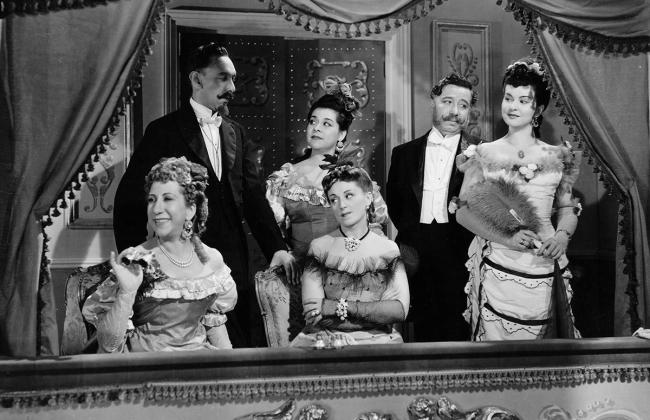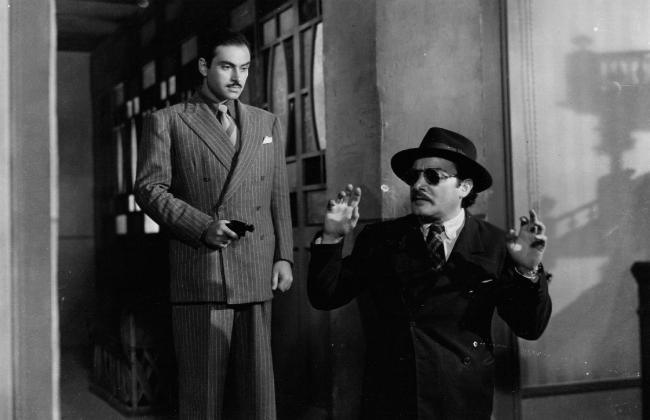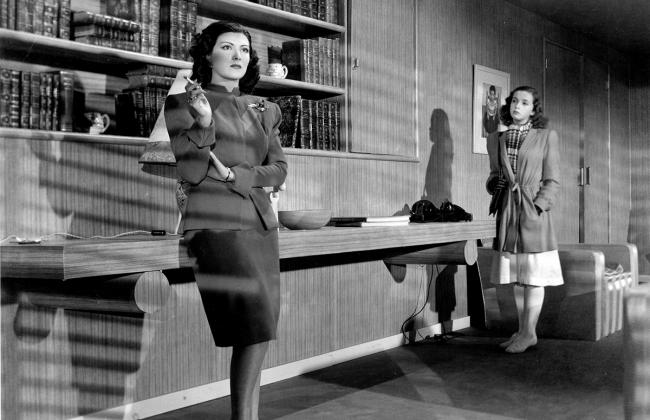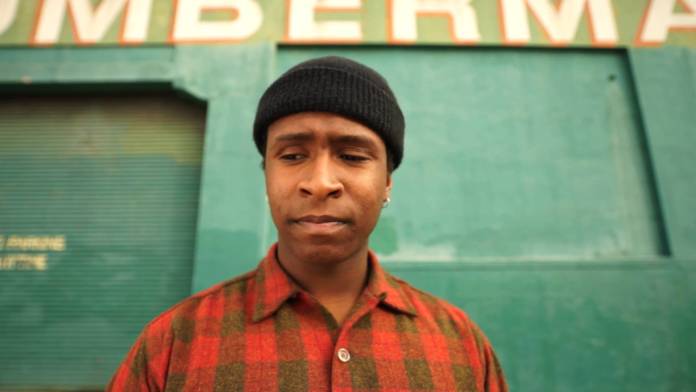SCREEN GRABS In addition to SF Cinematheque’s annual Crossroads showcase for experimental work at SFMOMA (see Jesse Hawthorne Ficks’ preview this week) and the continuation of SF DocFest (see our preview here), this week brings more new filmmaking of a comparatively commercial sort. Because no week is complete without at least some fresh superheroics, there’s the arrival of Dark Phoenix, the latest X-Men spinoff. And beyond the realm of DocFest, there’s notable non-fiction storytelling in The Spy Behind Home Plate (at Opera Plaza and Shattuck Cinemas), which relates the bizarre real-life saga of Jewish pro baseball player turned WW2 intelligence agent Morris “Moe” Berg—a tale that was rather disappointingly dramatized last year in The Catcher Was a Spy, with our usual favorite Paul Rudd miscast as Berg.
But that just scratches the surface of a week that brings plenty of interesting movies, ranging from one of the year’s best (not to mention one of the all-time great cinematic odes to San Francisco) to a cherry-picking selection from Mexican celluloid’s “golden age” sixty to eighty years ago. All open on Friday June 7, unless otherwise noted:

Julio Bracho and Mexican Cinema’s Golden Age
Though ironically most Americans would very seldom see any Mexican movies until later, when dubbed exploitation movies began more frequently crossing the border, Mexico’s “golden era” for film production is usually defined as the 1940s and 50s. At that point, it attained its own Hollywood-esque star system and levels of studio gloss, the results dominating much of motion picture exhibition throughout Spanish-speaking Latin America. One of the leading directorial talents during this period was Bracho, a Durango native with some significant connections—among his relatives were Dolores del Rio and Ramon Navarro, Hollywood’s brightest Mexican stars—but quite enough talent to make his own way.
This Pacific Film Archive series showcases six highlights in a writing-directing career that logged nearly fifty features over a 35-year span. It’s a diverse lot united by stylish professionalism and a flair for melodrama, even if Bracho reportedly sometimes felt the material he was given to adapt was beneath him. After starting out in theater, he got off to a successful silver-screen start with 1941’s Those Were the Days, Senor Don Simon!, which kicks off the PFA retrospective this Friday. This plush, fru-fru period romance centers on a not-particularly-grieving society widow (Mapy Cortes) who, pissed to discover her lover (Arturo de Cordova) is having an affair with a can-can dancer pretends to accept the attentions of a most unappealing local politician (Joaquin Pardave). Based on a zarzuela that was in turn based on a French operetta, this fluffy semi-musical ends (spoiler alert!) with a particularly outrageous denouement in which the two suitors decide not to kill each other, having discovered they’re father and son.
That hit enabled Bracho to make some more serious films. His next film was Story of a Great Love, a nearly three-hour epic of mid-19th-century noble suffering. The enormously popular singer Jorge Negrete plays boy-turned-man who falls in love with the daughter (Gloria Marin) of a universally loathed moneylender who virtually drove his own father to his death, as a priest (Domingo Soler) hovers disapprovingly. Pious and ponderous, it’s a pueblo Wuthering Heights, with a “ceremonial dance of death” climax that would have made a great Carol Burnett skit.

Dating better is Another Dawn (1943), which some have compared to the same year’s Casablanca as another triangle drama against a backdrop of political intrigue. Pedro Armendariz plays a union activist fleeing assassins who know the documents he’s carrying could bring down the governmental regime. He stumbles into a former paramour (Andrea Palma) who’s now unhappily married to another old chum (Alberto Galan). Flavorfully shot by leading Mexican cinematographer Gabriel Figueroa (who’d later work with John Ford and Luis Bunuel), the film’s proto-noir aspects are a bit undercut by the soap-operatic emphasis on Palma—the director’s sister, and a more convincing argument for nepotism, since neither her looks or stilted acting suggest any likelier reason for stardom.
Even more noirish is 1945’s Twilight, an amour fou melodrama in which a famous surgeon (Arturo de Cordova) loses his grip obsessing over a woman (Marin again) first glimpsed as a nude model in a sculpture studio, then fatefully encountered later—when she’s (surprise!) become his best mate’s wife. With its chiaroscuro lighting, inner monologues, purple dialogue and silly “psychology” (the same year as Hitchcock’s similarly angled Suspicion), it is very stylish nonsense. More naturalistic, if not necessarily plot-wise, was 1948’s rural romance Rosenda, an admired film that was not available for preview.

Brancho had mixed feelings about doing so many films whose content were like lurid pulp novels, however elevated by his treatment. So it was very fulfilling when a decade later he was able to make Shadow of the Tyrant, based on a 1929 roman a clef novel by Martin Luiz Guzman—a thinly veiled expose of the fat-cat mechanizations that unfortunately secured ongoing highest-level government corruption after the Mexican Revolution. This talky drama isn’t as adventurous stylistically as one might like (for one thing, it flat-out refuses to provide any period trappings despite being set in the 1920s), but it was potent enough to win a prize at the Karlovy Vary festival when it premiered there in 1960.
Alas, despite all the changed names, it still struck too uncomfortably close to home for the present-day government’s censors, who banned it outright as “too controversial.” The original negative was destroyed, the film surviving only in a 16mm print that finally got released in 1990, well after both Bracho and Guzman had passed away. The PFA is showing this long-suppressed movie, which ends in a brutal massacre, in a recently restored version likely to be the best ever available.
After that bitter disappointment, Bracho remained a busy commercial director for the rest of the 1960s, then sharply reduced his activity before dying in 1978 at age 68. (His same-named grandson has been a successful Mexican film and TV actor for the last quarter-century.) This PFA retrospective proves that, at least in the “golden age,” he was one of Mexico’s most reliable and versatile screen craftsmen. Fri/7-Thurs/July 18, Pacific Film Archive. More info here.
The Last Black Man in San Francisco
Director Joe Talbot and coscenarist/star Jimmie Fails’ first feature was much-acclaimed in its Sundance debut earlier this year, and for once that hype proves fully justified. This beautifully lyrical and original piece is probably best compared to Barry Jenkins’ Moonlight among relatively recent movies—not so much for its African-American characters or themes, really, as for the poetical, personal, largely non-verbal way it approaches socially relevant issues of profound loss and inequity.
In a whimsically fictionalized version of his real-life background, Fails plays a native San Franciscan forced to crash with his best/only friend (Jonathan Majors as aspiring writer Montgomery) and the latter’s grandpa (Danny Glover) while pining for a home his family lost years ago—a magnificent Victorian in the Lower Fillmore. When its current owner is forced to move out amidst a legal squabble, Jimmie can’t resist “reclaiming” that past by illegally squatting.
Despite the specificity of that title, Last Black Man seldom pedantically spells out its underlying issues of gentrification, forced racial exodus, SF’s rapidly evaporating status as a safe haven for “alternative” types, et al. Yet it’s all here, from nostalgia for the onetime “Harlem of the West” and the hippie era (in fact, Talbot channels some of Harold & Maude’s countercultural melancholy) to dismay at a raft of political sea changes both slow-developing and recent. While the general air of lamentation will be particularly poignant for longtime Bay Areans, there’s much here that’s almost universally relatable.
It’s rare these days to see an American (or any) movie so lyrical in tone and style, let alone so accomplished in pulling that off, or so emotionally powerful in ultimate effect. Even if it were only a fraction as good as it is, The Last Black Man in San Francisco would still be a major local culture event. But being this good, even if it weren’t about SF at all, Talbot and Fails’ sad valentine to their city would automatically be one of 2019’s best movies from anywhere. At area theaters.
The Fall of the American Empire
Denys Arcand has been making features for almost sixty years, though he didn’t capture much attention outside Quebec until the late 1980s duo of The Decline of the American Empire and Jesus of Montreal, two films that crystalized his qualities: Thematic if not imaginative ambition, a somewhat conventional stylistic polish, garrulous if facile treatment of life’s big issues, and no lack of a sometimes smug self-importance. I’m not particularly a fan, but he’s no hack, and as major a figure as any in the history of Canadian cinema.
Despite its title, his latest is not a sequel to Decline. And despite the fact that it takes just three minutes for the word “Trump” to be mentioned (a few seconds after Pol Pot and Stalin), this is not one of Arcand’s more pontifical enterprises—which is all to the good, even if Fall isn’t getting the kind of fawning reviews that duly greeted his last real success, 2007’s pretentious The Barbarian Invasions.
Pierre-Paul (Alexandre Landry) has a doctorate in philosophy, but is reduced to working as a Montreal courier. He’s making a package delivery when he witnesses the end of a robbery-slash-shootout, impulsively grabbing several gym bags of cash as gangsters kill one another around him. Though he immediately hires (and befriends) the most expensive prostitute in town, Aspasie (Maripier Morin), PP mostly wants to use the money to “do good”—if the police and mobsters don’t stop him first. Remy Girard plays the ex-con drafted to help disseminate the elicit funds in this Robin Hood fantasy.
Arcand doesn’t have the knack for suspense or action needed to maximize the film’s potential as a caper flick. Still, the relatively escapist tenor makes his well-meaning if glib insights re: economic inequality, homelessness, etc. go down painlessly. This isn’t a great movie, but it’s still better than an overrated director’s most acclaimed past works. Embarcadero. (Also opens elsewhere in the Bay Area in coming weeks.)
Echo in the Canyon
It’s always annoying when someone appoints themselves the “star” of a documentary that’s not about them, a trend that’s become insufferably pervasive ever since Roger & Me. (Though it must be admitted, Michael Moore does it much better than 99.9% of his imitators.) Thus we get something like this very mixed bag, in which a valuable record of an artistic epoch has to fight for screentime with our latterday host reacting “Wow” or “Uh-huh” to the reminiscences of his elders. That host would be Jakob Dylan, celebrity son and a musician in his own right, though one seldom inspiring any great enthusiasm. Involved in a recording project covering some memorable songs that came out of LA’s bohemian Laurel Canyon culture over half a century ago, he and director Andrew Slater investigate that history.
It’s a pleasure and a privilege to see surviving personnel from the Byrds, Buffalo Springfield, The Mamas and the Papas, and other “LA acts”—plus Jackson Browne, Brian Wilson, Tom Petty, Eric Clapton, Ringo Starr, John Sebastian, producer Lou Adler and more—discuss how the folk revival and Beatlemania led to the growth of a unique musical subculture. (Some folks you might expect to see interviewed or at least discussed here, like Joni Mitchell or Carole King, get left out because they didn’t arrive until just after the film’s 1965-67 focus.) They’re insightful, articulate and occasionally surprising, as when David Crosby flatly admits that the real reason he got fired from The Byrds is “Because I was an asshole.”
But their reminiscences and plentiful archival footage occupy maybe 60% of a movie otherwise pointlessly given over to Dylan Jr.’s fatuous reaction shots, and his pleasant but uninspired covers of the classic material. Played in the studio or in concert, these performances involve some idiosyncratic collaborators, including Fiona Apple, Beck, Cat Power and Regina Spektor. But they’re not all well-suited to these songs, and in any case the defining interpretive sensibility isn’t theirs, but Jakob Dylan’s blandly competent one. Nor do these latterday artists have anything interesting to say about their forebears, who practically come off as Rhodes Scholars by contrast.
There’s enough of value here (including clips from Jacques Demy’s 1969 feature Model Shop, which captured some of the LA vibe of the era) to reward viewers. But with a slim running time of just over 80 minutes, it’s lamentable that at least half an hour is wasted on a de facto vanity-project-slash-album-promotion for a modestly talented artist whose main attribute is being related to a legendary one. Echo could have easily filled three in-depth hours without wearying us as much as five minutes of gratuitous Jakob Dylan does. Embarcadero.






